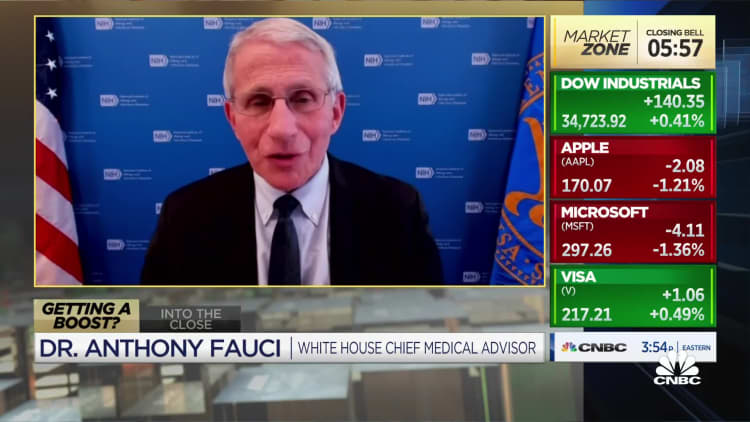Covid-19 cases are rising again in the Northeast, due in part to the omicron's highly contagious BA.2 subvariant — but the White House's new Covid czar isn't too worried about it just yet.
"I am not overly concerned right now," Dr. Ashish Jha told NBC's "Today" on Monday.
Jha, the dean of Brown University's School of Public Health, was named the White House's Covid-19 response coordinator last month. On Monday, he acknowledged the growing number of Covid cases in parts of the country: 27 states, plus Washington D.C., have experienced a jump in new cases over the past seven days, according to data from Johns Hopkins University.
But, Jha said, the data doesn't point toward another full-on Covid surge because hospitalizations are currently "the lowest they have been in the entire pandemic." According to the Centers for Disease Control and Prevention, the U.S. is currently averaging just over 1,300 hospitalizations per day, which is indeed a pandemic-era low point.
Of course, that's not a guarantee: Jha urged people to remain "careful," and watch how the subvariant evolves as it spreads. But, he said, he doesn't think "this is a moment where we have to be excessively concerned."
Some experts say the U.S. is well-suited to handle a rise in Covid cases right now because a majority of Americans currently have some level of Covid antibodies in their systems. According to a Centers for Disease Control and Prevention survey of blood donor samples, conducted in December and updated in February, an estimated 95% of Americans ages 16 and older have developed identifiable Covid antibodies.
Those come from both vaccinations — more than 77% of the U.S. population has received at least one Covid vaccine dose, according to the CDC — and prior Covid infections.
Still, the antibody statistic — while encouraging — is also no guarantee of protection against BA.2. Different types of immunity provide protection for different amounts of time, and not all Covid antibodies actively fight the virus, experts told CNBC Make It last month.
On Sunday, White House chief medical advisor Dr. Anthony Fauci broadcast a message of caution on ABC's "This Week."
"[Covid] is not going to be eradicated, and it's not going to be eliminated," he said, adding: "[W]e're going to have to live with some degree of [the] virus in the community,"
Fauci urged people to assess their own individual risk profiles before going out in public, recommending questions like: "What is my age? What is my status? Do I have people at home who are vulnerable that, if I bring the virus home, there may be a problem?"
He added that the best way to protect yourself is to get vaccinated and, if eligible, boosted.
Disclosure: NBC and CNBC are divisions of NBCUniversal.
Don't miss:
You'll probably need a second Covid booster shot — here's when experts say it could happen
The Covid pandemic is officially 2 years old – here's how it could finally end, experts say



